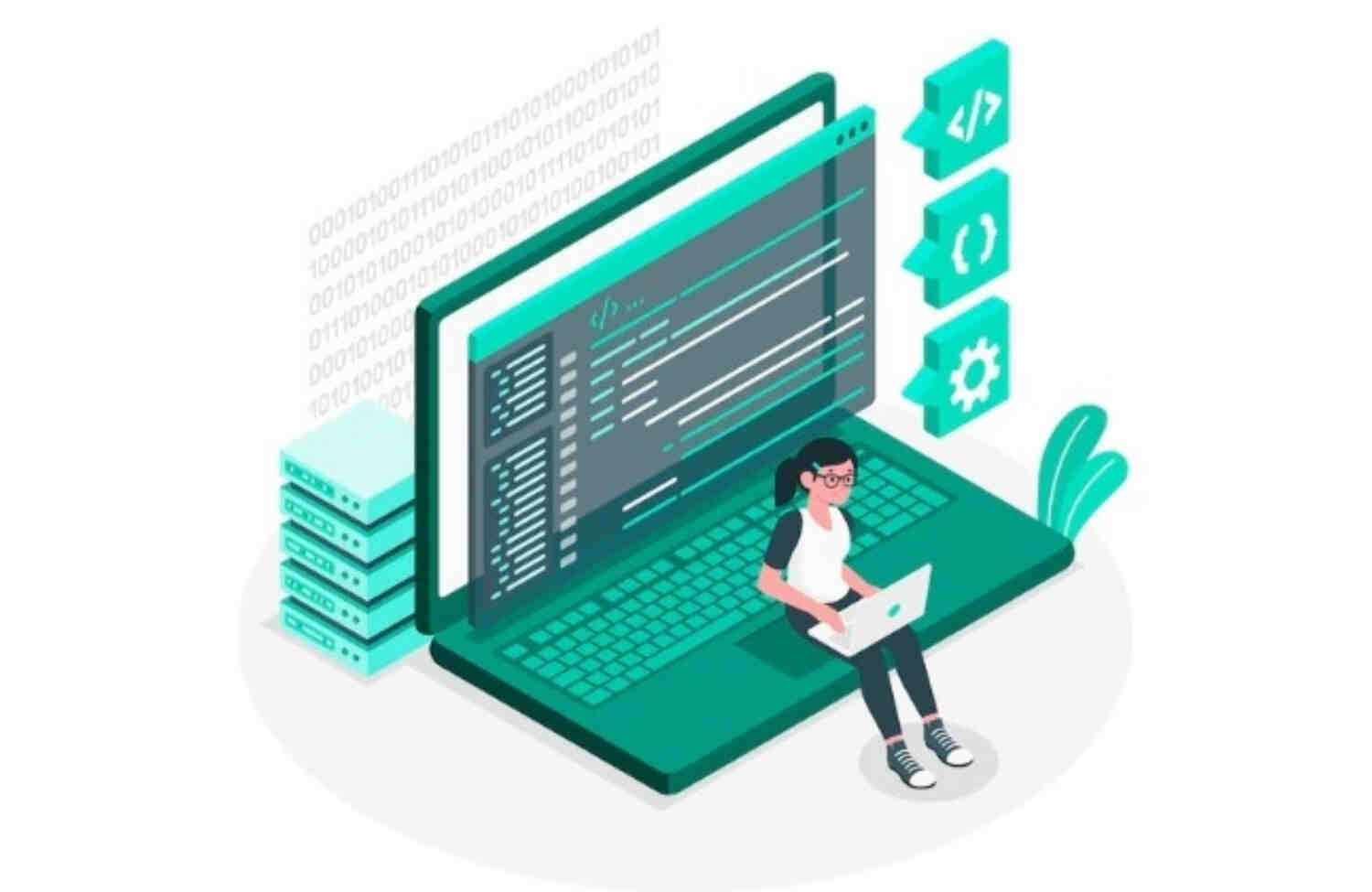
8 minute read
Full Stack Java Developer Online Training | Learn Coding Skills
For Quick Enquiry: Click Here
Introduction: Your Path to Becoming a Full Stack Java Developer with Online Training
In the world of web development, mastering Full Stack Java Course can open countless doors, especially if you're aiming to work with both the frontend and backend of applications. The demand for full-stack developers is only increasing in India, as companies seek versatile professionals who can handle every aspect of web and application development. Imagine the confidence you'll feel when you're able to build an application from scratch, manage databases, and design user interfaces—all thanks to an intensive, skill-focused Full Stack Python Course.
Opting for a Full Stack Java Course in Noida online allows you to gain flexibility, whether you're a beginner or someone looking to level up. With well-structured modules that blend core Java skills with advanced frameworks like Spring Boot, you'll be equipped to tackle real-world development projects. And the beauty of a full-stack course? It doesn't limit you to just one part of the application—you get to be the wizard behind both the frontend magic and backend muscle. Plus, the best part is that you can do it all from home (yes, even in your pajamas)!
In this blog, we’ll dive into two essential steps with three actionable sub-steps each, detailing what makes a Full Stack Java Course in Noida effective for mastering all the necessary skills. Along the way, we’ll sprinkle in some humor and make sure each step keeps you interested and learning. Let’s begin this journey to becoming a confident Full Stack Java Developer!
Laying a Strong Foundation with Core Java and JavaScript Basics
The first step in becoming a Full Stack Java Developer is to start with the basics, focusing on Core Java and JavaScript. These two languages are the bread and butter of any full stack course, forming the foundation of both the backend and frontend parts of web development. Skipping these basics is like trying to build a house without laying down concrete—sooner or later, things will start to fall apart.
1. Learning Core Java for Backend Development Skills
The journey begins with mastering Core Java, an essential step in any Python Training Online in Noida. Core Java introduces you to object-oriented programming, which is the foundation of Java-based applications. Concepts like classes, objects, inheritance, and polymorphism form the basis of well-structured code. By understanding these concepts, you’ll be able to write clean, efficient code that’s easy to manage, a crucial skill for any backend developer.
You’ll also explore data structures like arrays, lists, stacks, and queues, which help you manage and store data more effectively. These structures aren’t just for academic purposes—they’re used in real-world applications to keep data organized and accessible. So, if you’re planning on creating complex applications, you’ll need these skills in your toolkit. Think of it as learning to walk before you can run; mastering Core Java ensures that when you get to advanced frameworks in your Python Training Online in Noida, you’re ready to hit the ground running.
2. JavaScript Essentials for Creating Dynamic Frontend Experiences
While Java powers the backend, JavaScript brings your frontend to life. It’s the secret ingredient that makes your applications interactive and engaging. Through JavaScript, you can create dynamic user interfaces that react to user actions, making the application feel alive. Without JavaScript, your website would be a static, unresponsive page—like a store that doesn’t have any sales staff!
JavaScript also forms the basis for popular frontend frameworks like React and Angular. These frameworks allow you to create fast, responsive, and user-friendly applications. But before diving into frameworks, make sure you understand JavaScript’s core principles, including DOM manipulation, event handling, and AJAX for asynchronous data loading. This knowledge will be invaluable as you move into Full Stack Java Course in Noida, enabling you to build seamless, engaging frontend interfaces.
3. HTML and CSS for Structuring and Styling Your Applications
HTML and CSS might not seem as exciting as Java or JavaScript, but they’re essential for creating the structure and appearance of your web pages. HTML (HyperText Markup Language) gives your application its structure, defining elements like headings, paragraphs, buttons, and images. Without HTML, your content would be like a book without chapters—completely unorganized. Mastering these fundamentals is crucial for any Python Training Online in Noida.
CSS (Cascading Style Sheets), on the other hand, makes your application visually appealing. It allows you to set colors, fonts, and layouts, giving your application a polished, professional look. In a Python Training Online in Noida, you’ll often start by creating basic HTML and CSS pages and then move on to integrating JavaScript for interactivity. This is the step where you make your application look presentable, so don’t skip it—because a little style goes a long way!
Building Backend Expertise with Frameworks and Databases
Once you have a strong foundation in Java, JavaScript, HTML, and CSS, it’s time to dive deeper into backend frameworks and databases. This is where your Full Stack Java Course in Delhi becomes exciting, as you start working on projects that involve handling data and creating RESTful APIs. These are crucial skills for any full stack developer, allowing you to create robust, scalable applications that can manage user data and interact with other services.
1. Mastering Spring Boot for Efficient Java Backend Development
Spring Boot is a powerful framework for Java that simplifies the process of building standalone, production-ready applications. In a Full Stack Java Course in Delhi, you’ll learn how to use Spring Boot to create RESTful APIs that serve as the backbone of your application. Spring Boot takes care of much of the boilerplate code, allowing you to focus on the logic and functionality of your application.

One of the best things about Spring Boot is that it’s designed to integrate seamlessly with other technologies, such as databases and front-end frameworks. By mastering Spring Boot, you’ll be able to build scalable applications that can handle large amounts of traffic—a crucial skill in today’s web-driven world. So, if you’re looking to become a full stack developer, Spring Boot is your friend. Just remember, no need to reinvent the wheel; Spring Boot has already done the hard work for you!
2. Learning SQL and NoSQL Databases for Data Storage Solutions
Any application that handles user information, products, or any form of data needs a database. SQL (Structured Query Language) databases like MySQL and PostgreSQL allow you to organize and manage data in tables, making it easy to retrieve information whenever you need it. A solid Full Stack Java Course in Delhi will guide you through the basics of SQL, teaching you how to create, read, update, and delete data within a structured database.
NoSQL databases like MongoDB, on the other hand, are perfect for applications that need to handle unstructured data. They store information in a flexible, JSON-like format, allowing you to manage data that doesn’t fit neatly into tables. By learning both SQL and NoSQL databases, you’ll have the versatility to handle various types of applications, making you a well-rounded full stack developer ready for the job market.
3. Gaining Practical Skills by Working on Real-World Projects
Finally, no Python Training Online in Uttar Pradesh is complete without hands-on projects. These projects help you apply your skills in real-world scenarios, allowing you to build applications from start to finish. Whether it’s a simple CRUD (Create, Read, Update, Delete) application, an e-commerce platform, or a social media app, these projects will help you connect the dots between theory and practice.
Working on projects also gives you valuable problem-solving experience. You’ll encounter bugs, find solutions, and learn to think like a developer. Plus, you’ll gain confidence as you build a portfolio of work you can show to potential employers. After all, there’s no better way to learn than by doing—and no better feeling than seeing your hard work come to life as a fully functioning application.
Conclusion: Taking Your Skills from Beginner to Expert with Full Stack Java Training
In today’s fast-paced tech world, being a Full Stack Java Developer offers a world of opportunities, especially in a thriving market like India. By enrolling in a comprehensive Python Training Online in Uttar Pradesh, you’ll gain both the foundational and advanced skills needed to become proficient in web development. From mastering the basics of Core Java and JavaScript to diving into advanced frameworks and databases, this training gives you everything you need to tackle real-world applications with confidence.
But remember, it’s not just about learning code—it’s about building the mindset of a developer. Each project and each line of code helps you grow, making you more adaptable and prepared for the challenges that lie ahead. Working on real-world projects doesn’t just teach you skills; it instills a problem-solving mindset that will serve you throughout your career. And with each new project, you’ll feel a greater sense of achievement, a clear sign that you’re progressing toward your goal.
So, whether you’re coding your first “Hello, World!” or deploying a complex application, the journey of a full stack developer is filled with learning, challenges, and rewards. Embrace each step, keep experimenting, and don’t be afraid to make mistakes—that’s how you grow. With dedication, practice, and solid Python Training Online in Uttar Pradesh, you’re well on your way to becoming a skilled developer ready to make an impact in India’s vibrant tech industry. The world is ready for your talent—go out and code your success!
Also Read This:-










